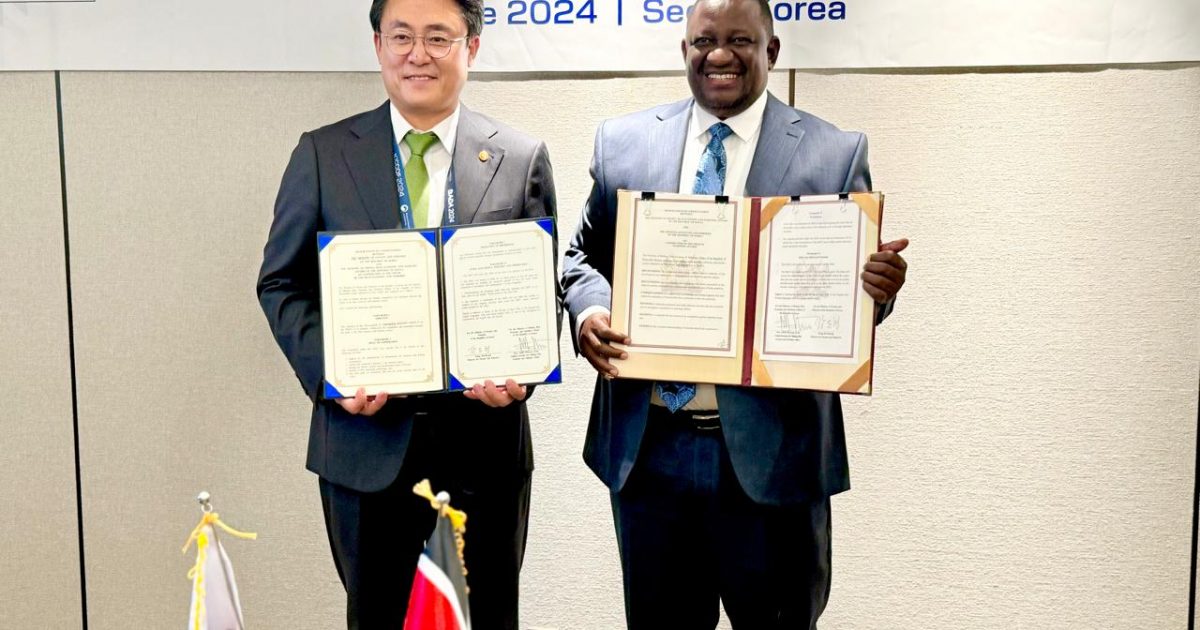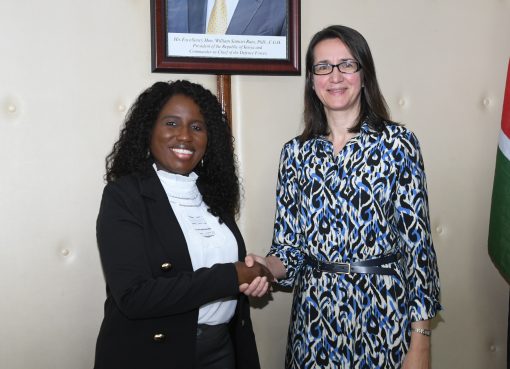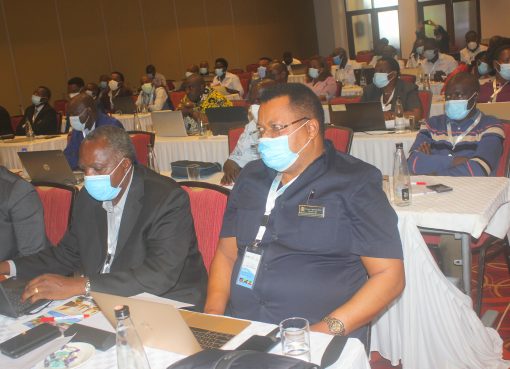Kenya and the Republic of Korea today signed two key Memorandums of Understanding (MOUs) to bolster their cooperation in Blue Economy and Maritime Affairs.
Mining, Blue Economy and Maritime Affairs Cabinet Secretary Salim Mvurya signed the MOUs on behalf of the Government of Kenya while Korea’s side was signed by the Oceans and Fisheries Minister Dr Do-Hyung Kang.
The signing ceremony was conducted in Seoul, Korea, during the Korea International Cooperation Conference on Oceans and Fisheries.
With the MOU on Blue Economy in place, Kenya and Korea will cooperate in supporting the establishment of infrastructure for fisheries and fishing communities as well as cooperative projects in the fisheries sector.
It also paves the way for collaboration in the training of fishery workers and professional human resources and transfer of fish processing technology among other areas of mutual benefit to the two countries.
In a press statement sent to KNA, CS Mvurya and his Korean counterpart agreed that the two sides will establish a Joint Technical Working Group and identify liaison secretaries who will be responsible for developing an implementation plan and supervision of the cooperative projects in the two countries.
The MOU on Maritime Affairs focuses on cooperation in recognition of seafarers certificates of competency and capacity development. “The parties may, by common accord, identify and deepen other areas of cooperation under this MOU,” the signed MOU says in part.
On recognition of seafarers certificates of competency, Kenya and Korea will create joint maritime-related activities between maritime training institutions ranging from conferences, seminars, workshops, collaborative research, short courses and other certification training programmes for students, faculty and industries.
The two countries will also cooperate in facilitating capacity building opportunities, development and review of curriculum in the oceans, maritime transport and logistics, and fisheries sectors.
Other areas of cooperation include on-site support from Korean lecturers, development of Seafarers Train-the-Trainers specialized courses, exploring opportunities for Kenyan maritime students and exchange of best practices on marine environment protection.
Speaking before the signing ceremony, CS Mvurya appreciated the steady growth of the blue economy and maritime relations between Kenya and Korea focusing on various areas of cooperation trade, maritime security and technology exchange.
“Both countries recognise the importance of maritime affairs for their economic development and have engaged in bilateral Agreements and initiatives to enhance cooperation in this domain,” the CS said.
In terms of Trade, the Cabinet Secretary noted that Korea is a significant trading partner for Kenya in maritime-related industries such as shipbuilding equipment, port infrastructure and maritime technology.
He said the two countries also collaborate in maritime security initiatives to combat piracy, illegal fishing and other maritime crimes in the region.
“Korea has provided assistance to Kenya in terms of capacity building, training, and technology transfer to enhance maritime security capabilities,” he said.
On Technology Exchange, CS Mvurya said Korea has shared its expertise in shipbuilding, port management and marine technology with Kenya through technical assistance programs and knowledge exchange initiatives.
“This collaboration aims to support Kenya’s efforts to develop its maritime infrastructure and enhance its competitiveness in the maritime sector,” CS Mvurya pointed out.
The Cabinet Secretary expressed optimism that enhanced relations between Kenya and Korea will cement their cooperation in dealing with emerging challenges including digitalization, decarbonisation, automation as well as emerging threats on shipping along global shipping lanes and the evolving role of the human element on safety of life at sea.
By Bernadette Khaduli




